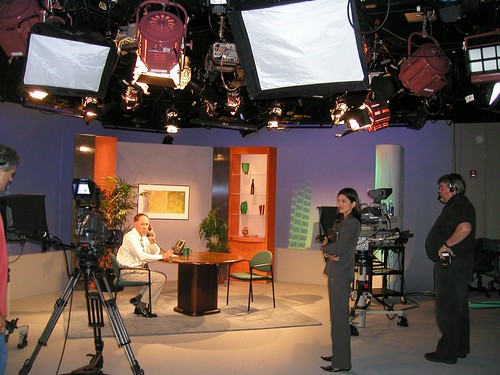Thursday, October 06, 2005
Podcasting: Broadcast Your Organization’s Knowledge
Jay Cross

Before long, an executive or expert will be able to record or telephone in an announcement that will be delivered via the Internet—to two subscribers, or 2 million. People can listen live, or at any time they choose.
 The larger the organization—and the more rapid its rate of change—the more challenging it is to keep people informed. Consider Cisco Systems. On average, the company brings out a new product every week. Its thousands of systems engineers must stay up to speed to keep their customers informed.
The larger the organization—and the more rapid its rate of change—the more challenging it is to keep people informed. Consider Cisco Systems. On average, the company brings out a new product every week. Its thousands of systems engineers must stay up to speed to keep their customers informed.
Mike Mitchell oversees the Cisco Media Network, a $7 million network-quality video studio and distribution system that is part Hollywood, part “Revenge of the Nerds.” The day I visited, CEO John Chambers was making his annual report to employees from the Santa Clara Convention Center. This was broadcast live throughout Cisco offices, and also will be added Cisco’s online content library. Just about anyone at Cisco can upload content that will be published for viewing worldwide.
Over the past five years, Cisco has formed global virtual teams of systems engineers in a dozen strategically important technical specializations. Being selected for a team confers status: Team members become the local go-to experts. Twice a year, each team of systems engineers meets face-to-face for up to five days. Their agenda may feature product presentations, Q&A with the field, competition, customer interviews and other business-critical messages the teams deem important.
Most systems engineers attend global virtual team meetings after the fact, at a time of their own choosing. Altus Learning Systems video-records the meetings and converts them into video on demand (VoD) for subsequent viewing. In addition to video, a VoD includes a synchronized PowerPoint presentation, MP3 audio and a word-for-word transcript. A team meeting typically generates 30 hours of streaming VoD content.
“We’ve Google-ized our IP,” said Juan Gamez, manager of technical programs for Cisco. As fast and easy as it is to search Google, Cisco systems engineers can pinpoint just what they’re looking for. Instead of searching the Internet, they query thousands of VoDs. Instead of receiving URLs to entire sites, the system takes them to the exact sentences they requested. They can stream this information from any Cisco office worldwide in a manner of seconds. Cisco people will initiate more than 30,000 searches for VoDs this year, and will view more than 20,000 of them.
Gamez recently noticed an anomaly in his usage statistics: Systems engineers accessed 243 percent more VoDs last year than the year before, but MP3 downloads were up a staggering 376 percent. Upon investigation, he found that they were downloading VoD content onto their iPods. (As natural-born techies, many systems engineers had purchased iPods early on.) Sensing another means of getting information out to the workforce, Gamez investigated what would be involved in podcasting product information.
Podcasting would enable systems engineers to subscribe to topics of their choice, which would automatically load into their iPods. They would gain the equivalent of their own portable, on-demand radio show.
Altus Learning Systems helps clients like Cisco disseminate product knowledge. Founder Ted Cocheu said that podcasting addresses two critical issues in today’s learning-on-the-run environment. The first is timely self-service access to the knowledge people really need. The second is mobility—accessing knowledge whenever, wherever. Podcasting fits the bill on both counts.











0 Comments:
Post a Comment
<< Home